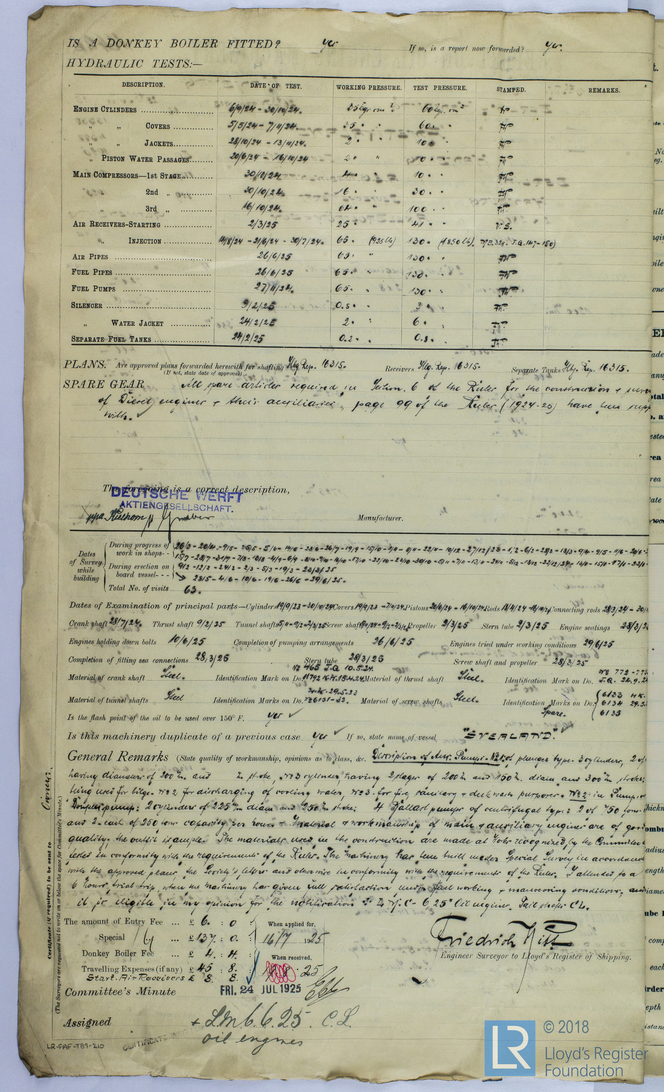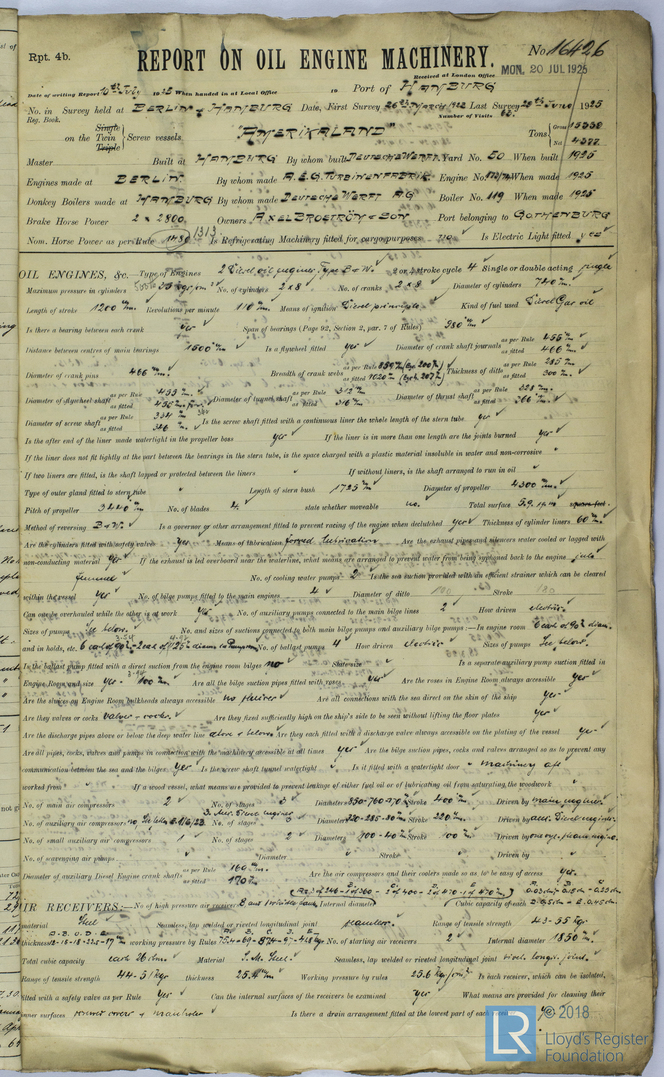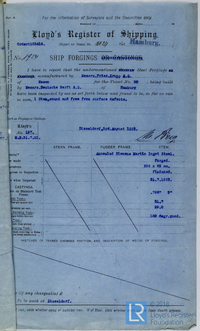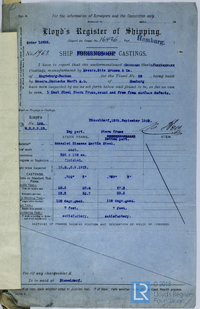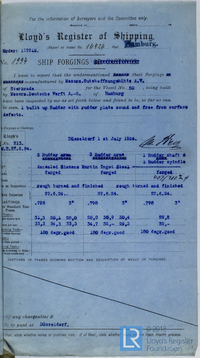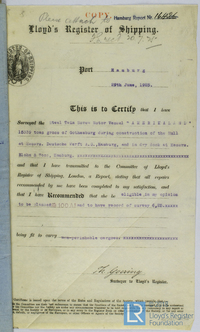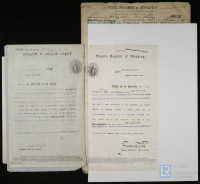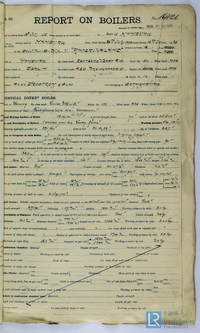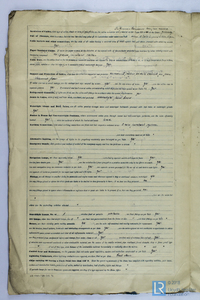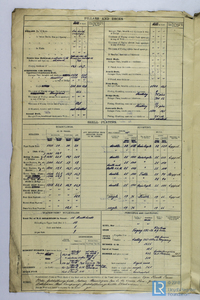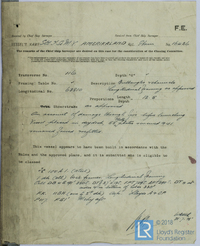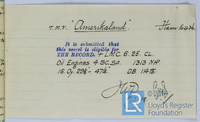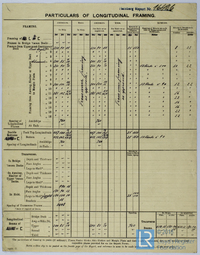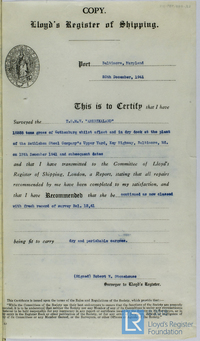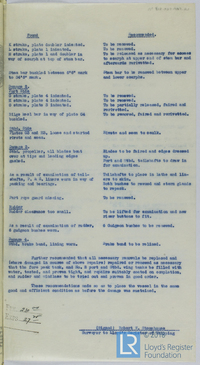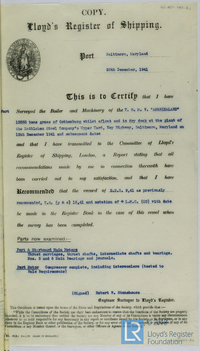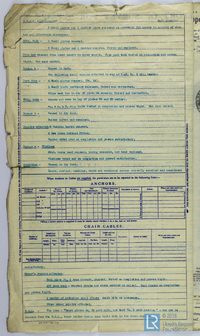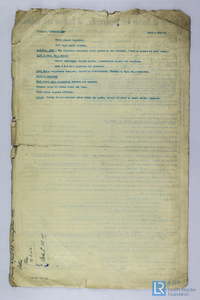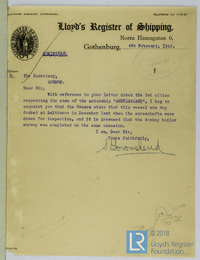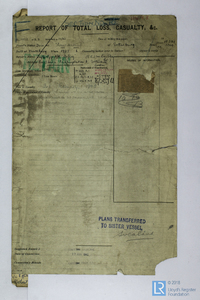- Related documents Related
- Full details Details
- Report document? Report?
Use the data export button to extract customised data sets from the Ship Plan and Survey Report Collection. Available in TSV and CSV formats.
Date recorded as the time of writing.
10/07/1925
The year in which a vessel’s construction is completed.
1925
The individual and/or organisation listed as having been responsible for constructing the vessel. This can/may be the same as the owner and/or manager.
Deutsche Werft A G
The port or place in which the vessel’s construction took place, at the time of writing.
Hamburg
Abbreviations of the names of ports with Lloyd’s Register survey offices.
Ham
Official administrative title (often printed) of a record used by Lloyd’s Register or external organisations.
4b Report on Oil Engine Machinery
The listed port to which a given vessel belongs.
Gothenburg
The date of first visit by a surveyor.
03/02/1924
The individual and/or organisation listed
Axel Brostrom & Son
Location where the document is written.
Berlin; Hamburg
Location where a vessel’s survey was undertaken.
Berlin; Hamburg
Date of the meeting of the Classing Committee.
07/12/1926
Broad categories and subdivisions of vessels related to their purpose or function.
Ore carrier
Type of fuel used onboard a vessel.
Motor - Oil
Is the steamer assisted by sail?
No
Tonnage derived by deducting from the gross register tonnage the capacity that in unavailable for cargo, e.g. machinery space, fuel, crew accommodation etc.
4377
Location of construction for a vessel’s engines.
Berlin
Date in which construction of a vessel’s engines were completed.
1925
Confirmation as to whether the vessel was equipped with refrigeration machinery to aid in the transport of frozen or chilled cargo/goods.
No
Does the vessel possess an auxiliary power source?
Yes
Is electric lighting fitted to the vessel?
No
Used to indicate the capability of early reciprocating steam engines, based on dimensions rather than performance. It is not a true indication of actual engine power.
1480
Name of ship as recorded on the record
Amerikaland
The process of transferring a vessel to water, but not necessarily her completion.
05/08/1926
Unique identifier for a given ship, it is assigned by a builder.
50
The country in which the vessel’s construction took place, at the time of writing.
Germany
Unique internal numbers used for identifying, referring and retrieving a specific survey report.
16426
The country (flag) that a vessel is registered to, at the time of writing.
Sweden
Records that constitute Lloyd’s Register’s first official encounters with a specific vessel, e.g. a survey report.
N
The date of last visit by a surveyor.
06/05/1927
Name of the individual/entity/organisation responsible for authoring the record
Friedrich Witt
Name of surveyor.
Friedrich Carl Max Witt
Classification symbol assigned to a vessel by Lloyd’s Register’s Classing Committee denoting the quality of construction and maintenance.
+LMC 6,25
Recorded information related to a vessel’s movements.
Hamburg
A vessel’s means of propulsion.
Motor (internal combustion)
Predominant material(s) utilised in a vessel’s construction.
Steel
A ship’s total internal volume in ‘register tons’ (replaced by gross tonnage post 1982).
15339
Description/specifications listed of the vessel’s engines and machinery. (The engines/machinery may have been surveyed separately before being assigned to a vessel).
2 Diesel Oil Engines Type B & W
The country, at the time of writing, where a vessel’s engines were constructed.
Germany
A E G Turbinenfabrik
Is machinery fitted at the aft of the vessel?
No
Generally a smaller additional auxiliary boiler (often used while the vessel is at port).
No
Name of the Proving House responsible for the public testing and certification of a vessel’s anchors and/or chain cables.
No
Physical extent of a record.
1
Report an issue with this document
Have you noticed missing or incorrect data or images for this document?
Please let us know and we will rectify the issue as soon as possible.

